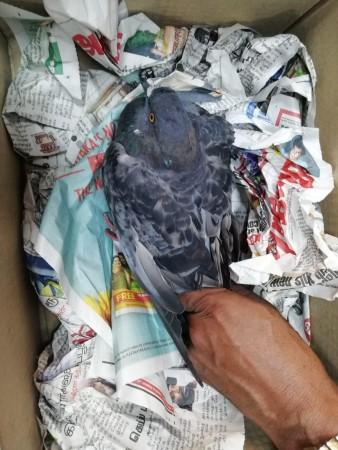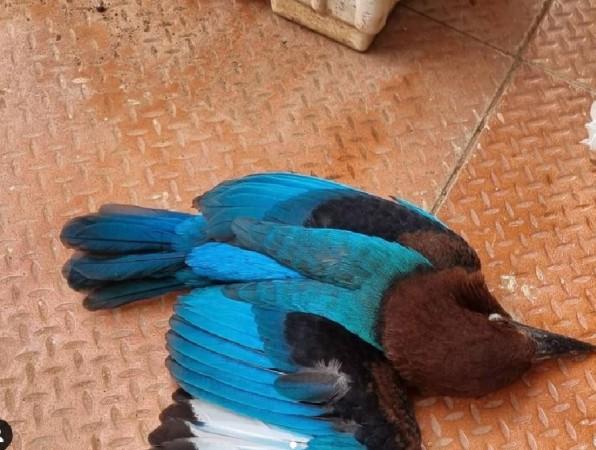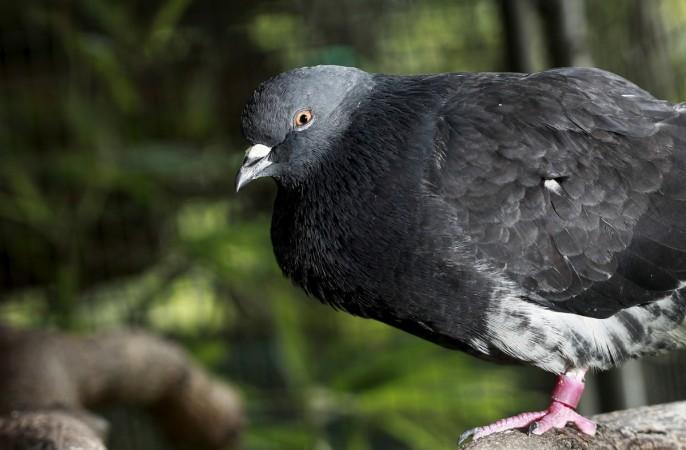Recently, a Bangalore-based food scientist, Shishira Suresh used Dunzo services to send over an injured pigeon to the hospital.
The young rescuer who works in Canada but is in the city to be with her parents, took to her Twitter account to share, "A sentence I never thought I'd say: I Dunzo-ed a pigeon! Found an injured pigeon that couldn't fly sitting by the side of the pavement, with cars speeding by dangerously close to it."
Shishira who has rescued birds in the past reached out to ARRC in Bangalore but since they don't rescue pigeons, they directed her to the pigeon hospital managed by Ranka Vasanthraj. While the hospital, a not-for-profit, specialized in pigeon care, it didn't have its own logistics and used delivery app services to ensure the birds reach the hospital safely.

Bird rescue, a lesser-known deed
While her good deed gained her a lot of appreciation on social media, it also encouraged other users to share their experiences of rescuing birds.
Neerja Shah posted, "ARRC are the best! I'd found a kite hanging by a thread from a tree in my lane last week. They came within 20 mins, took the kite, called to give constant updates on the progress, and brought it back to the same tree today once it was healed."
Another user shared a post from March which spoke of a similar instance where an injured pigeon was sent over to the pigeon hospital in Rajajinagar using delivery app services.
In May, Divya Shetty, a resident of Bangalore again, took to her Instagram account to share her story of rescuing a weak Kingfisher bird spotted on her terrace and dropping it at ARRC for further recovery.

Speaking to IBTimes, Shishira Suresh, food-scientist and passionate bird rescuer said, "Bird rescuing as a cause doesn't gather so much awareness. Right now, it is the breeding season, so there are a lot of baby birds (fledgling) that are learning to fly and when they aren't able to figure out how to get it right, they end up on the ground, injured."
Shishira who has also rescued a bulbul and baby crow in the last few weeks furthered, "These tiny birds either get in the way of a moving vehicle or are eaten up by a stray cat. Very few learn to grow into independent, fully-grown birds. That's when organizations such as ARRC and pigeon hospital come into the picture and help these injured birds recover and rehabilitate."

750 birds rescued in June by ARRC
Jayanthi Kallam, executive founder of Avian and Reptile Rehabilitation Centre (ARRC) shared with International Business Times that last month, nearly 750 rescue operations were done.
"In a year, we rescue over 100 species of birds and other wild animals who are a part of the urban jungles. Due to lockdowns, kite flying as a sport has increased in the city for obvious reasons, however, people don't realize the effects of this on birds who often get injured by the glass-coated or nylon thread (Manja)," she said adding that although these threads are banned, they are still sold at local stores.
"A group of NGOs has filed a change.org petition regarding this issue and we are hoping to find a solution to this," she further stated.
Unnecessary human intervention to be avoided
Talking about the breeding season (March to June) for birds and what to do if fledglings are found injured, she shares, "Citizens need to be most careful and avoid unnecessary intervention like taking them back home if found on the ground, which can lead to displacement. If an injured bird is spotted, reach out and we can advise them on what to do."
Upon recovery, ARRC follows two approaches for rehabilitation. "If it is an adult bird, then we leave it around the same area where it was originally found. Birds also have families, partners and they can identify their nest easily," she says adding, "It is best not to leave them in the forest or unknown areas as it would be a vulnerable space, for they are used to urban jungles."
In the case of a baby bird, they adopt a soft release method wherein it is let out in a secure environment for a while until fully recovered and independent. "When it is ready to fly, we release it."
If you find a bird or animal in distress and wish to help, ARRC can be reached out for rescue and recovery of all wild birds, small mammals like squirrels, hares, bats, and reptiles such as snakes, tortoises. They do not work with pigeons, monkeys, exotic pets, cats, dogs, and cattle farm animals.
ARRC Bangalore: 9449642222 / 9620286800
Pigeon hospital, Bangalore: 98452 21309

















